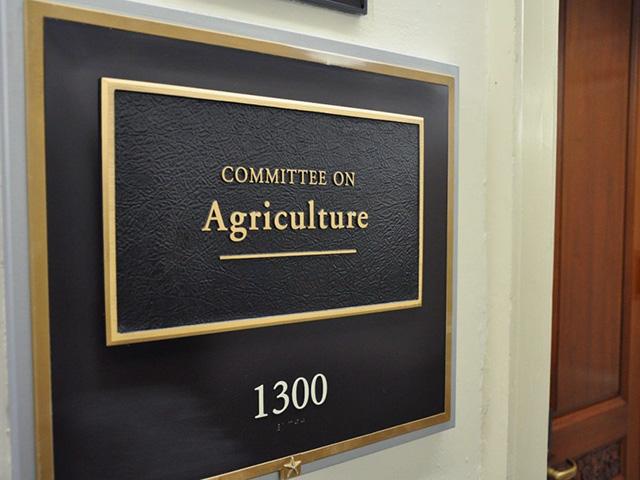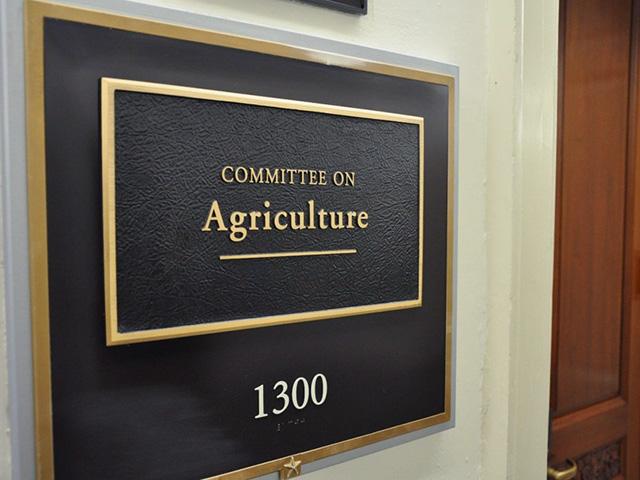Ag Policy Blog
The Six Who Want to Nix Farm Bill ARC/PLC Fix
Last October it took eight Republican House members to oust then-Speaker Kevin McCarthy and effectively gridlock Congress in the process.
Now, six Republican House members -- in a letter highlighted by fiscally-conservative groups -- are making it clear they are "in strong opposition" to Congress raising reference prices in the farm bill. Those lawmakers, in a letter released by the R Street Institute, include Reps Alex Mooney and Carol Miller of West Virginia, Andy Biggs of Arizona, Nancy Mace of South Carolina, Brian Mast of Florida and Andy Ogles of Tennessee.
Only two of the six -- Biggs and Mooney -- were in Congress to vote on the 2018 farm bill and they each voted against the final bill.
The lawmakers' opposition comes as House and Senate Agriculture Committee leaders have been trying to figure out a way to pay for an increase in reference prices, which are tied directly to the Agricultural Risk Coverage (ARC) or Price Loss Coverage (PLC) programs. A 10% bump in reference prices for all commodities is estimated to cost about $2 billion a year.
The six House members cite that, "While our farmers face unique risks, our farm safety net already provides significant tools to help our farmers manage the ups and downs of agriculture, including government-subsidized crop insurance and other subsidies designed to offset low prices."
P[L1] D[0x0] M[300x250] OOP[F] ADUNIT[] T[]
The lawmakers point out USDA has provided $120 billion over the last five years to farmers "and an increase in reference prices would drastically increase that amount."
Also noting $140 billion in net farm income in 2023 -- it's actually $151.1 billion -- the Gang of Six also noted that 2023 represents the second highest net farm income on record, behind only 2022.
"Now is not the time to increase federal spending through additional reference price increases," the lawmakers said, adding they had promised to reduce spending, not increase it."
None of the six House members are on the House Agriculture Committee. It's unclear if they represent a broader number of GOP members who don't want to vote for a farm bill projected to cost $1.25 trillion over ten years. The House Republican Study Committee, which represents a majority of GOP members, has called for eliminating either ARC or PLC.
With such a small majority in the House, the letter from a half-dozen GOP members is a likely victory for Democrats that it will take a bipartisan bill to pass the House floor. That will undercut other conservative efforts to cut spending on nutrition programs, for instance. During a panel discussion at the American Farm Bureau Federation (AFBF) annual meeting, staff for Republicans on the House and Senate Agriculture Committee indicated they see an opportunity to cut changes USDA made to the Supplemental Nutrition Assistance Program (SNAP) as well as increase reference prices for farmers, or "put more farm in the farm bill." Democratic staff for the two committees balked at that idea, saying that cuts to nutrition "create a wedge issue" that ends up hurting the overall farm bill.
There remain a lot of questions and hurdles to getting a farm bill done in 2024. One of the more surprising statements at the Farm Bureau annual meeting came from veteran Rep. Frank Lucas, R-Okla., who already is suggesting a new farm bill may have to wait until 2025. Lucas, however, is not looking at cuts but finding ways to redirect money to the safety net.
"If they can't, the ultimate question is, is it better to extend what we have out for another year?" Lucas told DTN. "Or, if we don't have the resources, do we need to pass a five-year farm bill? It's woefully underfunded. I'd rather extend another year and look into policy."
Chris Clayton can be reached at Chris.Clayton@dtn.com
Follow him on X, formerly known as Twitter, @ChrisClaytonDTN
(c) Copyright 2024 DTN, LLC. All rights reserved.






Comments
To comment, please Log In or Join our Community .